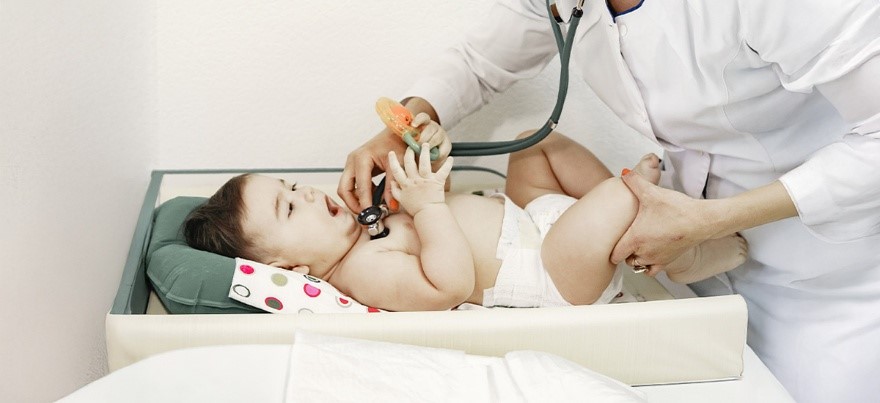Categories
How To Keep Your Child’s Heart Healthy – Tips From Pediatric Cardiologists In Delhi
Apr 10, 2025
Heart health starts at home and this muscular organ is at the center of everyone’s well-being, literally and figuratively. While heart disease is often associated with adulthood, it is crucial to understand that the foundation for lifelong heart health is in childhood. Pediatric cardiologists at Rainbow Hospitals, Delhi emphasize that healthy habits can prevent many cardiovascular issues in adulthood, starting early in life. As parents, we want to see our children grow up strong, happy, and full of life. In this article, we share valuable insights from our best pediatric cardiologists in Delhi to help parents understand how to keep their child’s heart healthy and thriving.
Start with a Healthy Diet
A well-balanced diet isn’t just about growth; it is about keeping the heart in good shape. Encourage meals rich in fruits, vegetables, whole grains, lean proteins like lentils, eggs, beans, and chicken, and healthy fats like nuts, seeds, and avocados. Avoid ultra-processed snacks, sugary drinks, and excess salt, as these food items can raise cholesterol and blood pressure, even in young children.Smart Swaps
- Replace chips with roasted nuts or puffed rice
- Choose water or homemade smoothies over soda
- Opt for home-cooked meals over frequent takeouts
Encourage Regular Physical Activity
Children today spend more time on screens and less time outdoors. Unfortunately, a sedentary lifestyle is one of the leading risk factors for childhood obesity and poor heart health. Ensure your child gets at least 60 minutes of physical activity every day. This doesn’t have to be rigorous; it can be dancing, cycling, swimming, walking the dog, or just having free play. Create a Family Fitness Habit:- Weekend hikes or park visits
- Evening walks after dinner
- Limit screen time and encourage outdoor games
Watch The Weight
Being overweight puts stress on the heart and can increase the risk of diabetes, high blood pressure, and high cholesterol. However, addressing weight must be done with care and kindness. Focus on healthy behaviours, not numbers on the scale. Celebrate efforts, like choosing a fruit over a cookie or finishing a walk. Instead of saying you need to lose weight, say, “Let’s find fun ways to be healthier together.”Genetics Play a Role
Some children may be at a higher risk of heart issues due to family history. If close relatives have had early heart disease, high blood pressure, or cholesterol issues, your child may benefit from earlier screening. Regular check-ups with a pediatric cardiologist are crucial, especially if there is a known history of congenital heart defects, arrhythmias, or early heart disease in the family. Early detection can lead to timely care.Manage Stress and Emotional Well-being
Stress isn’t just an adult problem. Exams, peer pressure, bullying, or even family issues can take a toll on your child’s mental health and, by extension, their heart. According to pediatric cardiologists in Delhi, ensure your child builds healthy coping mechanisms, like talking about their feelings, practicing breathing exercises, or journaling. Create a safe, non-judgmental space at home where they feel heard and loved.Avoid Passive Smoking and Air Pollution
Children’s lungs and hearts are still developing, and exposure to second-hand smoke or polluted air can damage blood vessels and increase the risk of heart and lung diseases.- Never smoke near children
- Use air purifiers if you live in high-pollution areas
- Encourage indoor games or exercise on days when air quality is poor
Recognize Warning Signs Early
Some heart problems in children are silent, while others may show signs like:- Frequent tiredness or breathlessness
- Fainting or dizziness during activity
- Blue lips or fingertips
- Irregular heartbeat or palpitations
- Poor weight gain in infants
FAQs:
- When should I consult a pediatric cardiologist in Delhi for my child?
You should consider consulting a specialist if your child shows symptoms such as frequent fatigue, rapid breathing, chest pain, fainting spells, or bluish skin/lips. Children with a family history of heart disease or congenital heart defects should also undergo early evaluation.
- How can I keep my child’s heart healthy from an early age?
Pediatric cardiologists in Delhi recommend that parents encourage a balanced diet and daily physical activity in their children. Additional routine health check-ups and minimal exposure to second-hand smoke and pollution also help. Teaching your child to manage stress and ensuring quality sleep are also key steps toward lifelong heart health.
- What tests are done by a pediatric cardiologist in Delhi at Rainbow Hospitals?
This will depend on your child’s symptoms. A specialist may suggest tests such as ECG, echocardiogram, chest X-ray or stress testing to evaluate heart structure and function.







